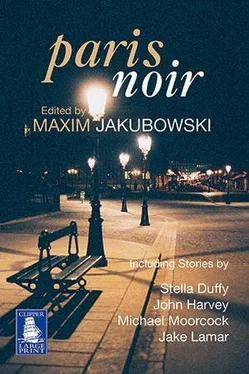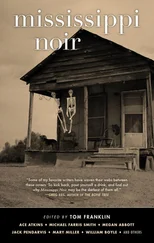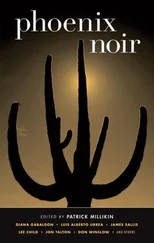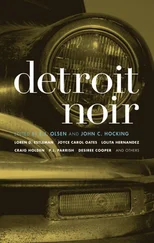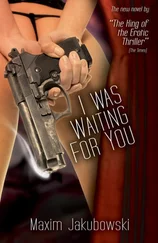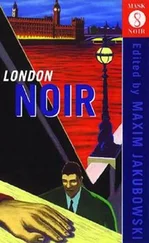Maxim Jakubowski - Paris Noir
Здесь есть возможность читать онлайн «Maxim Jakubowski - Paris Noir» весь текст электронной книги совершенно бесплатно (целиком полную версию без сокращений). В некоторых случаях можно слушать аудио, скачать через торрент в формате fb2 и присутствует краткое содержание. Жанр: Детектив, на английском языке. Описание произведения, (предисловие) а так же отзывы посетителей доступны на портале библиотеки ЛибКат.
- Название:Paris Noir
- Автор:
- Жанр:
- Год:неизвестен
- ISBN:нет данных
- Рейтинг книги:3 / 5. Голосов: 1
-
Избранное:Добавить в избранное
- Отзывы:
-
Ваша оценка:
- 60
- 1
- 2
- 3
- 4
- 5
Paris Noir: краткое содержание, описание и аннотация
Предлагаем к чтению аннотацию, описание, краткое содержание или предисловие (зависит от того, что написал сам автор книги «Paris Noir»). Если вы не нашли необходимую информацию о книге — напишите в комментариях, мы постараемся отыскать её.
Edited by Maxim Jakubowski, the stories range from quietly menacing to spectacularly violent, and include contributions from some of the most famous crime writers from both sides of the Atlantic, as well as the other side of the Channel.
Paris Noir — читать онлайн бесплатно полную книгу (весь текст) целиком
Ниже представлен текст книги, разбитый по страницам. Система сохранения места последней прочитанной страницы, позволяет с удобством читать онлайн бесплатно книгу «Paris Noir», без необходимости каждый раз заново искать на чём Вы остановились. Поставьте закладку, и сможете в любой момент перейти на страницу, на которой закончили чтение.
Интервал:
Закладка:
Walking away from Mme Sacco’s I heard laughter coming from above me. I looked up and saw a boy sitting on a windowsill, playing with a live monkey. It’s me, I thought. I am the monkey.
Nadja, why is it so difficult to remember exactly what you looked like? Your precise words escape me also. My recreations are passable but not accurate. You made me examine my actions, forced me to consider possibilities other than the obvious. I am desperate now for the absolute taste of you.
I am in my studio at one minute past four o’clock in the afternoon, listening to the traffic pass in the street below my open windows. The sky is solidly grey with perhaps a stripe of white. I am embarrassed by my eagerness for night, the darkness, which I never used to be.
One evening in Père-Lachaise, as we strolled among the graves, you began to sing – some children’s song, I believe – and I was horrified. I dared not mention the fact to you, knowing you would ridicule my timidity; but I could not suppress the unholy feeling I derived from your merrily singing in the cemetery. Virtually everything you did disturbed, upset, surprised me. And yet I suffer.
Wherever Nadja is must be a better place than this, especially for her. I prefer to imagine Nadja in paradise, satisfied at last with the circumstances of her existence. She could never be happy in conventional life, better than she is allowed the latitude of feeling beyond desire. That her behaviour was considered bizarre, her appearance unsightly, and she found herself rejected on her own terms, could not have given Nadja much hope for even an acceptable afterlife.
I recall the time Nadja decided she would be an artist, a painter. She borrowed money from me for materials and did not leave her room at the Hotel Sphinx for several days. At the end of her siege Nadja emerged with one painting, which she showed to me at the Dôme. It was a self-portrait, Nadja Among the Carnivores , she called it. In the painting Nadja was depicted nude, walking in a street surrounded by ghoulish figures: huge goblins with beaks, monstrous dark shapes, devils with pitchforks, deformed crones, a conglomeration of hideous Bosch-like characters. The style was, as one might imagine, crude, the technique primitive. One could not, however, deny its power, the unsettling effect of the painting.
I told Nadja that I was impressed by the force of her work, and that I would gladly purchase the painting from her. She refused my offer. ‘It is not for sale,’ she said. ‘Now that you’ve seen it, I can destroy it.’ I begged her not to, but at that moment she began tearing the canvas apart, shredding it into strips. ‘Now,’ Nadja said, smiling, ‘I have been an artist. You are my witness. I never have to prove myself again.’
My feeling about Nadja is ultimately one of sadness, loss, but not without a certain degree of satisfaction in having kept faithful to my perception of her intentions. I do not pretend to have understood Nadja, though I remain to verify her existence.
As we were walking together along the Quai de l’Heure Bleue on a November afternoon, Nadja stopped and pointed to the river. ‘November is the first of the Suicide Months. Look there, in the middle of the Seine, I am drowning and boats pass oblivious to my distress.’
Here in the fading afternoon light, the world spinning senselessly as always, besieged by despair and unreasonable notions, I recall Nadja’s succinct admonition, ‘Prepare.’
ETHNIC CLEANSING by DOMINIQUE MANOTTI
DAY I
Twenty thousand now,’ says the fat, greasy-haired man in a cheap brown suit, his forehead and upper lip covered in perspiration. He repeats: ‘Twenty thousand now,’ as if to convince himself of the amount, and taps his desk drawer. ‘Cash. And twenty thousand when the job’s done, if it all goes well, no discussion. Again, cash.’ Breaks out into a fresh sweat. I’m handing over forty thousand euros to a guy whose name I don’t even know. He mops his forehead with the cuff of his brown suit jacket, which is nice and absorbent, as if he does it all the time. It’s come to this… This or fleeing abroad. This and fleeing abroad?
The guy standing in front of him – athletic body, well-groomed, shaved head, smooth, tanned, tight black T-shirt, black jeans, black leather boots, not far off forty, from the slight slackening of the skin and the stomach – wordlessly extends an open hand across the desk. The fat man hesitates for a moment, opens the drawer and tosses an envelope onto the desk. The other guy picks it up, counts the notes in no hurry, and slips them into his underpants, under his jeans, pulling in his stomach.
‘How long?’
‘A week, max.’
‘Fine.’
He automatically hitches up his jeans and leaves. Does his sums as he goes down the stairs (avoid lifts, potential hazard). Forty thousand, not exactly a fortune. But I’m not getting any younger… Besides, it’s not the riskiest job. That’s why it’s worth it, don’t want to stick my neck out, or share. Not bad. He’s back in the street. Little wink at the copper plate by the entrance to the building. Alfred Poupon Property Agent, Staircase A, 3rd floor, left. Old Poupon was sweating, he reeked of fear. Not used to this type of operation. Is that a good thing for me or dangerous?
Hidden behind a third-floor window, Alfred Poupon watches the man walk off down the street with the wad of notes in his underpants. He turns the corner, calm and assured. That’s it, he’s gone.
End of a suffocatingly muggy August day. Zé leaves Paris at the wheel of his white, five-year-old, all-purpose Clio. He turns off the périphérique onto a very wide main road alongside a chaotic sprawl of showy office blocks. This new business district is the big city’s latest growth spurt. At this hour, and in the middle of August, it’s completely deserted, quite sinister. Zé cruises slowly. He’s approaching the A86 motorway which is becoming the second Paris orbital, spots the slip road, turns onto it, goes even slower. The target’s there, set back from the road below him, a few metres from the security barrier. Zé’s on the alert, eyes sharp, neurons buzzing: take it all in at a glance, clock everything, don’t risk a second drive-by. An isolated five-storey building of dirty, greyish brick, with a long crack running diagonally from window to window. All the openings, which must have been bricked up once, are now gaping. Behind the building, a huge overgrown waste ground dotted with loose stones, apparently empty, sloping down to a canal where there’s little activity.
But the building in the middle of this wilderness is teeming with life. At ground level, on the strip of beaten earth between the façade and the motorway slip road, there’s a whole crowd of black men in jellabas or brightly coloured shirts coming and going amid the dust – squatting, sitting on wooden packing cases, standing around, chatting, playing cards and doing business. An old man in a long, immaculately white robe sitting motionless on a chair against the wall, face upturned, eyes closed, seems to be drinking in the light of the orange sunset which makes his face glow.
Through the cracks in the wall, glimpses of a central wooden staircase, women in flowing boubous busy around makeshift fires surrounded by hordes of children jostling and running. The upper floors look very animated too. Zé thinks he catches a whiff of the familiar smell of groundnuts and spices simmering. That’s the real thrill of the chase, when the hunter feels this close to his prey. Get a grip. Professional. Loads of squatters, all looking alike. No hope of passing unnoticed with your white mug, even with a deep tan. He pulls out onto the motorway and accelerates.
Читать дальшеИнтервал:
Закладка:
Похожие книги на «Paris Noir»
Представляем Вашему вниманию похожие книги на «Paris Noir» списком для выбора. Мы отобрали схожую по названию и смыслу литературу в надежде предоставить читателям больше вариантов отыскать новые, интересные, ещё непрочитанные произведения.
Обсуждение, отзывы о книге «Paris Noir» и просто собственные мнения читателей. Оставьте ваши комментарии, напишите, что Вы думаете о произведении, его смысле или главных героях. Укажите что конкретно понравилось, а что нет, и почему Вы так считаете.
